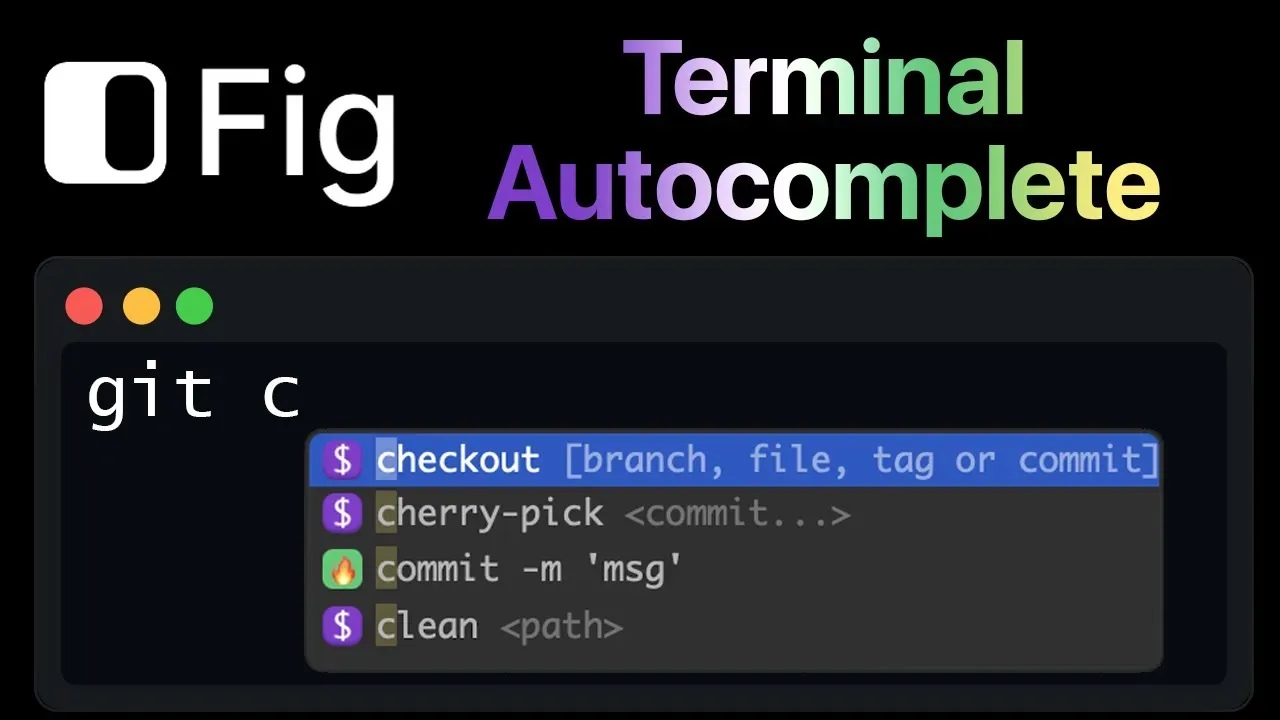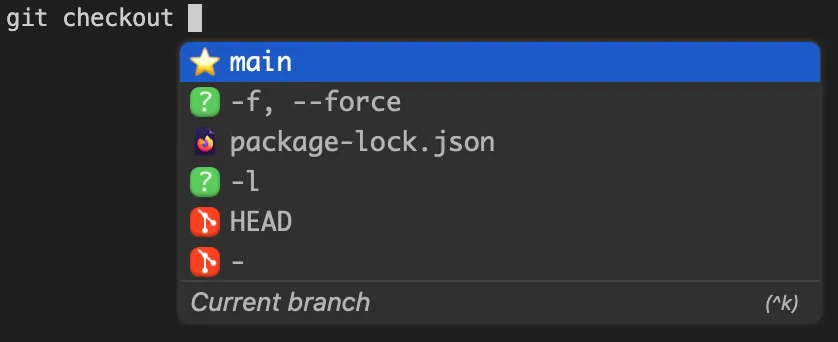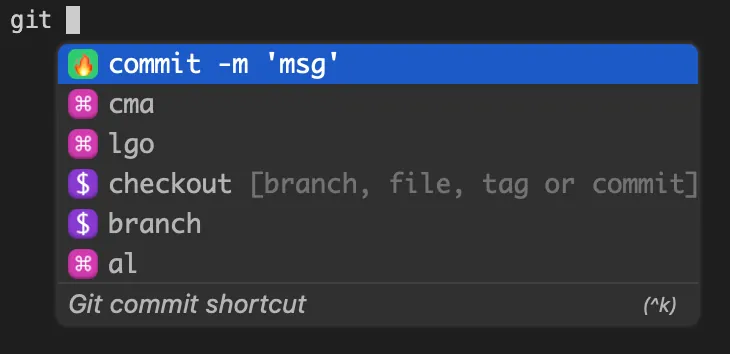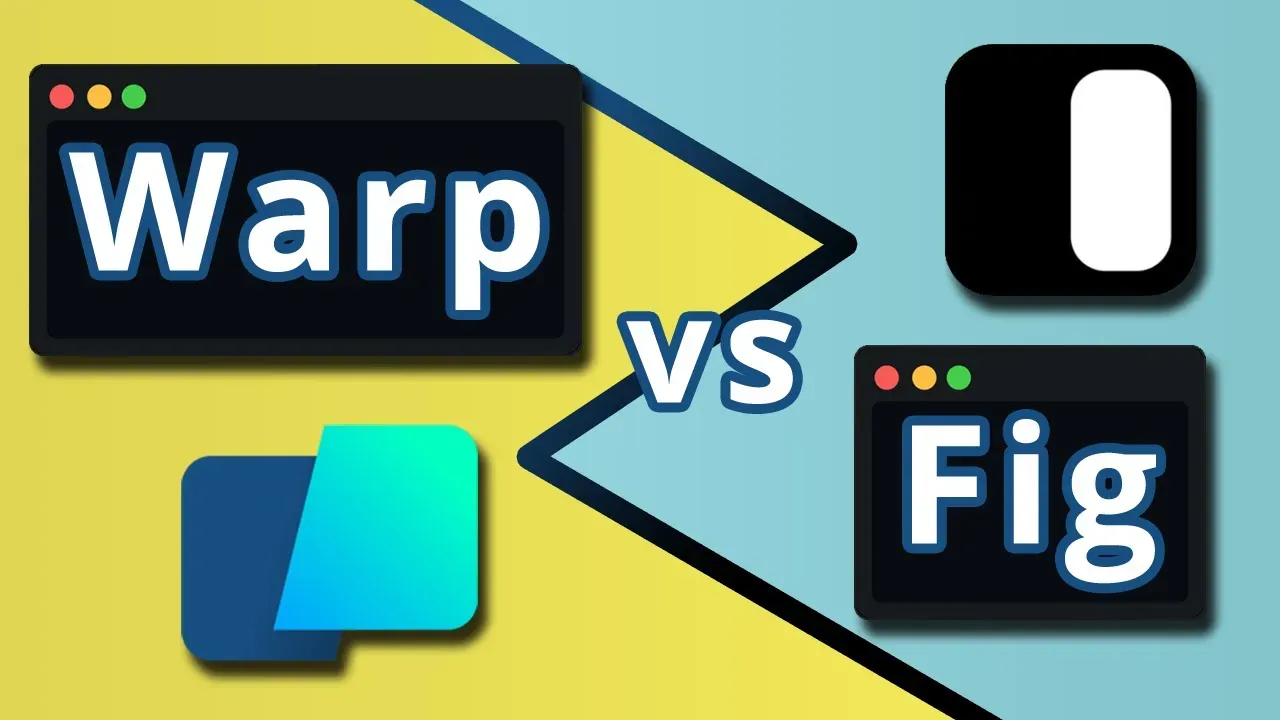· 4 min read
Autocomplete and Artificial Intelligence in your Terminal

I get asked on every single video what is this autocomplete I’ve got on my terminal, and the answer is… drum rolls… fig!
Actually, it’s much more than a simple autocomplete, even if to be honest it’s what I use 90% of the time.
If you want to see a showcase of some of the major features, as usual, I recorded a video and you can find it on YouTube!
Still here? If you’re not a video guy, feel free to read the article instead!
Autocomplete
Let’s give a closer look at autocomplete.
What you could expect from an autocomplete is to suggest you the next command while typing it. Or for example, getting the list of all the files in the current directory.
Fig does much much more! When you start typing a command (for example git checkout) you will see fig suggesting all the possible flags and options you can use, for example --force or -b.
Enough? Not yet! You can also see on the recommendations all the available branches you can pass as argument to the command!

I mean, it’s cool on an image, but you should really have a look at the video to see it in action!
You will be surprised to notice that as soon as you start typing git, you will see in the autocomplete some weird commands, like cma or lgo. What are those? Well, they are the aliases I defined in my dotfiles, and fig is able to read them and suggest them to me!

Artificial Intelligence
The coolest feature right after autocomplete is… well, the name is self explanatory… artificial intelligence. We’re in 2023, AI is everywhere, including our terminals.
With fig, you can start typing fig ai to get some help.
To begin with, let’s start with a simple fig ai -h to get the help.
English -> Bash translation
Usage: fig ai [INPUT]...
Arguments:
[INPUT]...
Options:
-h, --help Print help
It’s all there on the first line, it translates English to Bash. Just write in plain english what you want to do and fig will translate it to a bash command for you!
Then you can either use it, edit it or ask the ai to generate a new command.
Again, I think it doesn’t give it justice just written as a blog post, you should really really watch the video or even better try it yourself.
Custom scripts
In a concept similar to alias, you can define some custom scripts and give them a name.
When you type fig run in your terminal, you will get a list of all the scripts you defined.
There’s also a script store where you can find some scripts other people created and use them directly in your terminal.
Plugins
Similar to the scripts and the script store, you can find plugins aaaand a plugin store.
With plugins you can even further enhance your terminal experience.
Dotfiles
Fig helps you manage aliases, variables, paths and more, all in one place.
As you can see in the video I’m not really using this feature, but I think I should. It’s one of those nice to have that you can easily live without, but once you discover them you start thinking why you haven’t started using them earlier.
Open Source
Did I already mention the autocomplete is Open Source? You can contribute on GitHub.
Plugins are open source too and you can add yours directly on the repo!
Actually, feel free to go on the withfig page and have a look at all the repos, there’s a lot to discover.
Closing
And that’s it! It wasn’t a paid sponsorship but I genuinely enjoy using fig’s autocomplete every day and since you asked many times I though it was cool to make an entire piece of content about it.
Do you also use fig and its other features? Let me know in the comments!

Hello! My name is Leonardo and as you might have noticed, I like to talk about Web Development and Open Source!
I use GitHub every day and my favourite editor is Visual Studio Code... this might influence a little bit my conent! :D
If you like what I do, you should have a look at my YouTube Channel!
Let's get in touch, feel free to send me a DM on Twitter!
 Leonardo Montini
Leonardo Montini

